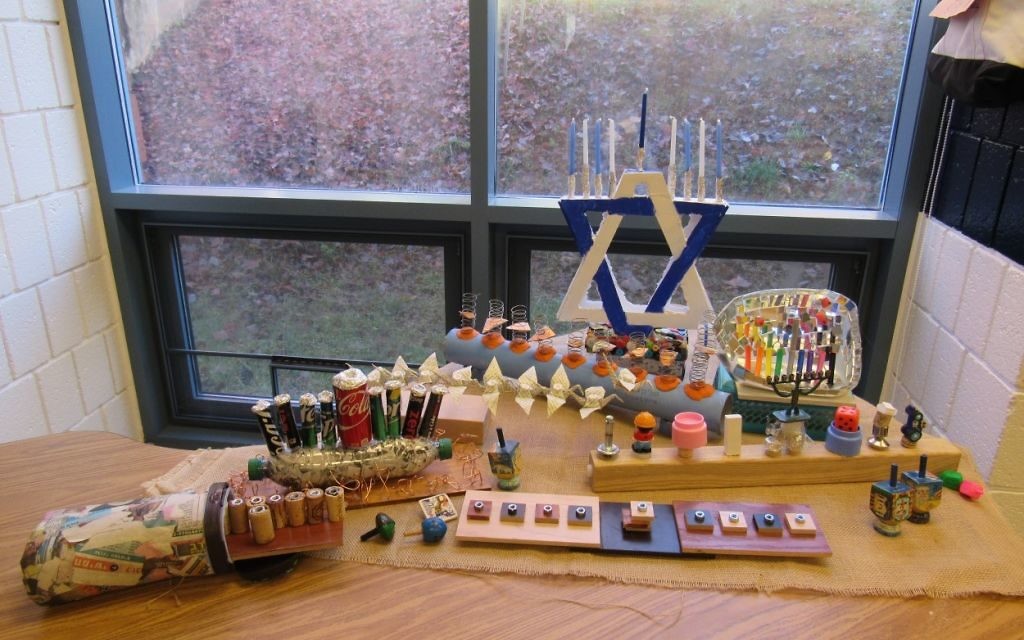Why I Welcome the Christmas Conversation
The holiday season gives us the chance to explore boundaries and the meaning of being Jewish today.
“I finally had the hard conversation with our son,” my friend lamented.
Immediately I thought of sex or maybe politics. But no. The subject of the difficult conversation? Christmas.
Having graduated the synagogue preschool, the boy was attending kindergarten at the local public school in a small city. As the only Jew in the class, he was wondering what kept the magic of lights, trees, cookies and Santa from their house.
Get The AJT Newsletter by email and never miss our top stories Free Sign Up
I had to laugh. When my children were small, we lived in New Jersey, and at Chanukah neighbors would pile into our home to light candles and spin dreidels. At Christmas we would head down the street, decorate the tree and hang our stockings.
When we moved to Chicago, my daughter found friends who included her in decorating their tree and sent her home with a branch of greenery and a string of lights.
The hard conversation came next as I explained that we would not set up this sad little collection in our living room.
This time of year, many Jewish families are having this same hard conversation. In the context of modern American life, where Christmas is less about Jesus and more about sugar cookies, it can be hard to explain the reasons why Jews should not indulge in perfectly lovely, fun customs that are only tangentially religious.
In the end, my friend did with her kindergartner as I did and as many Jewish parents do in America: She upped her Chanukah game. Candle lighting and dreidel were supplemented with presents, decorations, ugly sweaters and sugar cookies for eight days.
No need for Christmas envy when we have an equally wonderful and elaborate celebration of our own.
I doubt the Maccabees would approve.
The historic story of Chanukah that emerges from the Book of Maccabees focuses on the triumph of a small group of religious zealots fighting the Greeks. The concern of these fighters was that the unique ways of the Jews would be compromised by assimilation into Greek culture and norms.
Through most of Jewish history, assimilation was not a threat to the Jewish community. Even in places where Jews got along well with their neighbors, such as Spain or India, the boundaries between Jews and other religious-ethnic groups were fairly well delineated both by law and custom. Chanukah, the only globally celebrated Jewish holiday without biblical origins, remained a minor holiday.
Ironically, in the United States, where the boundaries between cultures and communities are so open, we have done exactly as the Maccabees worried we might. We have modeled our Chanukah celebration after the traditions of others, and it has become a major Jewish festival.
Yet I’m comfortable living with this particular irony. The Maccabees were religious zealots willing to kill for a purist approach and interpretation. The rabbis, by contrast, chose to frame the story and the holiday in religious terms, focusing not on doctrine, but on the ineffable, allowing for awe and ritual to come to the fore.
Today, globalism has made cultural sharing more possible than ever before, not only in the United States. As boundaries between peoples and their traditions come down, it is no surprise that religious zealotry and cultural bigotry are on the rise again.
Receptivity is challenging. It makes for difficult conversations and choices about identity and culture. Nonetheless, I prefer to have difficult conversations rather than embrace a narrow and zealous approach to Judaism.
In moving away from the historic telling of the Chanukah story, the rabbis of old provided us with a model to reinterpret the meaning of the holiday to answer the deeper questions about the spirit and meaning of Judaism, its traditions and customs. This Chanukah, I’m taking a page from the ancient rabbis — in addition to frying latkes, singing songs and lighting candles, I am looking forward to leaning into questions about boundaries and what it means to be Jewish in modern times.





comments